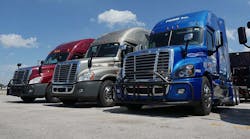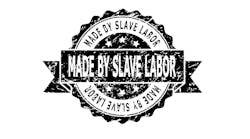A decision handed down Jan. 15 by the U.S Supreme Court will force radical change in how trucking companies deal with independent contractor drivers.
The decision strikes down clauses in interstate owner-operator contracts requiring that disputes over compensation and working conditions go to arbitration rather than to court. Class action lawsuits are an important weapon in the arsenal of those who view independent contractors as misclassified employees, including tort lawyers seeking a target-rich environment and the Teamsters union, which for a long time has been attempting to organize owner-operators, including package delivery and port drayage drivers.
The crux of the decision is that it firmly establishes that all truck drivers involved in interstate and foreign commerce are not covered by the Federal Arbitration Act (FAA), which allows businesses to adopt contractual language requiring arbitration. Passed in 1925, the law specifically excludes “contracts of employment of seamen, railroad employees, or any other class of workers engaged in foreign or interstate commerce” from containing arbitration clauses.
Up until now, trucking employers using owner-operators in this sort of work held they were not “workers” or employees but were independent businesses that contracted with larger carriers.
In its 8-0 decision (Justice Brett Cavanaugh had not been confirmed when oral arguments were heard last fall), the High Court’s decision written by Justice Neil Gorsuch determined that there is no significant difference in the words “employee” and “worker” under the law and thus no distinction in this situation between people who work as independent contractors and those who are considered employees.
The case at issue involved a former owner-operator for the national temperature-controlled carrier New Prime Inc., more commonly known as Prime Inc. Lawyers agree that the decision creates a sea change in trucking by allowing how owner-operator drivers can resort to the courts to challenge their classification, instead of forced into arbitration under contractual language.
“New Prime has significant immediate ramifications for transportation industry employers, which are now unlikely to be able to require many categories of individuals to arbitrate employment disputes,” say attorneys Thomas Gies, Trina Fairley Barlow and Christine Hawes of the law firm of Crowell & Moring.
Attorneys Alexander Chemers and Robert Roginson of the Ogletree Deakins law firm note, “Although the Supreme Court ruled in favor of the worker, it did not address a key issue, namely, who qualifies as a transportation worker ‘engaged in foreign or interstate commerce’ subject to the FAA’s exclusion.”
The Supreme Court also tried to settle another issue in New Prime, declaring that determination of whether the FAA exempts certain workers is a question for the courts to decide, not arbitrators. This part of the decision is a head-scratcher because just a week earlier the court seemingly held the opposite.
In that case involving the Henry Schein Inc. dental supply company, a unanimous decision held that nothing in the FAA empowers a court to make a determination as to the merits of whether a dispute should be arbitrated, and such a decision should be left to the arbitrator instead of a court.
Attorneys for owner-operator drivers in California, Illinois and other states earlier had filed class action lawsuits that also argue the FAA arbitration exemption applies to them because they are engaged in interstate transportation.
As for the driver in the New Prime case, Dominic Oliveira, this does not end his epic court journey. Now that the FAA issue has been settled, his case will go back to the lower court where it was originally brought to be judged on the merits. Oliveira asserts that he was really an employee during the time he worked as an owner-operator and that the company owes him for failing to pay minimum wage for all the hours he worked. If the court finds in his favor, the decision also would set a precedent for other Prime owner-operators.




